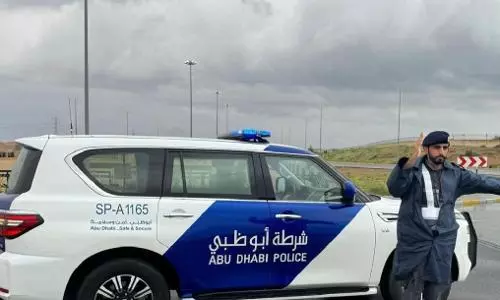
A boost to India-Pak ties
text_fieldsIndia and Pakistan deciding to resume comprehensive bilateral dialogue after a gap of seven years is surely a sign of improving ties between both nations.
Foreign Minister Sushma Swaraj’s visit to Islamabad and her announcement during a joint press conference with Pakistan's Foreign Affairs Adviser Sartaj Aziz that both countries have decided to resume the talks are evident signs of meltdown. The India-Pak diplomatic talks have been obstructed after the 26/11 Mumbai terror attacks. The discussions will include a wide range of issues like peace and security, Kashmir, Siachen, Sir Creek, economic and commercial cooperation, counter-terrorism and other matters which are in the interest of both nations. The cricketing ties between India and Pakistan are yet to get the green signal. Even though Swaraj was there to attend the Heart of Asia conference, transforming the opportunity into a platform for improving the strained ties between both countries is seen as a rapid progress in this direction within the past ten days. The talks lasted well past an hour. The latest development is seen as a rational step towards resolving issues with tolerance also giving positive hopes of peace at the border areas ripe with skirmishes on November 16 after Modi came to power. Erstwhile Prime Minister Manmohan Singh who ruled the country for ten years couldn’t visit the neighbouring nation. But speculations of Modi likely to visit Islamabad next year and attend the SAARC summit hosted by Pakistan have been ripe. The moves are certainly attempts to boost the ties between nations. India has so far been firm in its stand of not holding any discussions or friendly talks until the Pak government penalized the accused in the 2008 Mumbai terror attacks. The last ministerial-level visits were in 2012.
The differences had led to the cancellation of Secretary-level talks as well. The conflicts along the border and the calling off of bilateral cricket matches further strained the relations. The two leaders kept ignoring each other at the international conferences with little interaction or gesture exchange. The Ufa statement issued in July 2015 in Russia was utilized by the opponents to target Shariff; it has omitted the reference to Jammu and Kashmir. But the signs of melt down became visible after the Modi-Shariff meeting at the Paris Climate Summit on November 30. India’s national security advisor Ajit Doval and Pak advisor Lt. Gen. Nasir Khan Janjua abruptly reaching a decision on resuming bilateral dialogue after hours long talk on terror in the presence of foreign secretaries in Bangkok surprised the analysts. The reminder that the traditional enmity between both the nations couldn’t stand in the way of achieving the same goal of tackling the challenges posed by the terrorists have prompted new experiments in this direction brushing aside the frequent internal pressures from the big powers is the general perception. It’s an undeniable truth that there are forces on both sides of the border that detest the boosting of ties between India and Pakistan. Whenever the Pak government has come forward for peaceful negotiations and cooperation, forces including military leadership have hampered the attempts, mostly by triggering tensions along the border. Whether Modi and Shariff would strive towards restoring peace and harmony by overcoming the pressures is what the world looks forward to.























